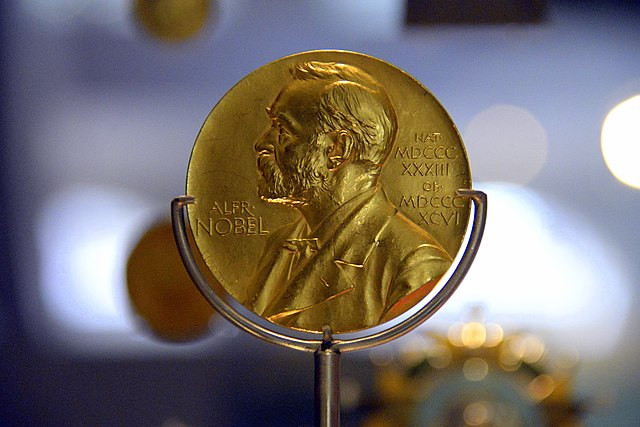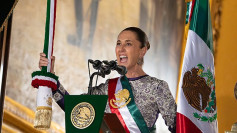Daron Acemoglu, Simon Johnson, and James Robinson were awarded the 2024 Nobel Prize in Economic Sciences for their groundbreaking research on the roots of global inequality, shedding light on why some nations are rich while others remain poor. The U.S.-based economists were recognized for their work that highlights the critical role of institutions and governance in shaping a nation's prosperity. Their research emphasizes how countries with inclusive, well-functioning institutions thrive, while those with exploitative systems often experience stagnant growth.
The trio's work, particularly their widely read book Why Nations Fail, has gained significant recognition for demonstrating how historical factors, including colonization, have influenced modern economic systems. They argue that many countries are trapped in a cycle of poverty due to "extractive institutions" that concentrate power and wealth among elites, depriving the broader population of opportunities for growth. This stands in contrast to "inclusive institutions," which uphold the rule of law, property rights, and allow for equitable economic participation, fostering long-term prosperity.
"The question of why some nations are rich while others are poor is one of the most pressing issues in economics today," said Jakob Svensson, a professor of economics at Stockholm University and a member of the Nobel committee. "The laureates have shown that the nature of political and economic institutions is a key factor in determining a country's development trajectory."
Acemoglu and Johnson, both professors at the Massachusetts Institute of Technology (MIT), and Robinson, a professor at the University of Chicago, have spent decades researching the long-term impacts of governance, legal systems, and economic structures on national prosperity. Their analysis, focused on historical periods of colonization, demonstrates how colonial powers often imposed institutions designed to extract resources rather than promote sustainable growth, a legacy that continues to affect many nations today.
The introduction of more inclusive institutions, less extraction and the rule of law would create long-term benefits. So why don’t the elite simply replace the existing economic system?
The laureates’ model for explaining the circumstances under which political institutions are… pic.twitter.com/oPCbMndkQM — The Nobel Prize (@NobelPrize) October 14, 2024
One of the central arguments presented in Why Nations Fail is the comparison of two neighboring towns: Nogales, Arizona, in the United States, and Nogales, Sonora, just across the border in Mexico. Despite having similar geography, culture, and resources, the economic outcomes for the people in each town are drastically different. The reason, the economists argue, lies in the vastly different political and economic institutions that govern each region. The U.S. side benefits from inclusive institutions that encourage innovation, entrepreneurship, and economic security, while the Mexican side has historically been hindered by corrupt and extractive governance.
This research is particularly timely, as global leaders continue to grapple with rising inequality and the persistent wealth gap between nations. According to the Nobel committee, the wealthiest 20% of countries are now approximately 30 times wealthier than the poorest 20%, a disparity that has been growing over time.
Simon Johnson, in a recent interview, explained how their findings highlight the importance of fostering institutions that enable broad-based economic participation. "What we've seen over centuries is that societies that provide greater opportunity for innovation, where people can access markets and compete fairly, generate higher growth and wealth for everyone," he said. "Unfortunately, many countries are still hampered by systems that benefit only a small elite."
The laureates' research has also raised questions about the sustainability of authoritarian-led economic growth. Acemoglu and his co-authors have argued that while some countries, such as China, have experienced rapid growth under authoritarian regimes, this model is less likely to foster long-term innovation. "Authoritarian regimes can pour resources into certain sectors, but without inclusive institutions, the innovations are often not sustainable," Acemoglu said during a press conference.
Their recent book, Power and Progress, published in 2022, expands on this idea by analyzing how technological advances have often benefited the elite at the expense of the broader population. They warn that the current trajectory of artificial intelligence and automation could exacerbate inequality unless inclusive policies are put in place.
The Nobel Prize in Economic Sciences, officially known as the Sveriges Riksbank Prize in Economic Sciences in Memory of Alfred Nobel, was established in 1968 and has been awarded annually to individuals whose work has made a significant contribution to the field. This year's prize comes with a cash award of 11 million Swedish kronor (around $1 million), which will be shared among Acemoglu, Johnson, and Robinson.






